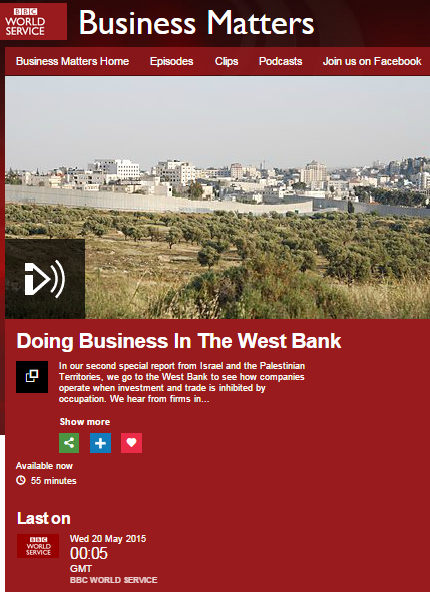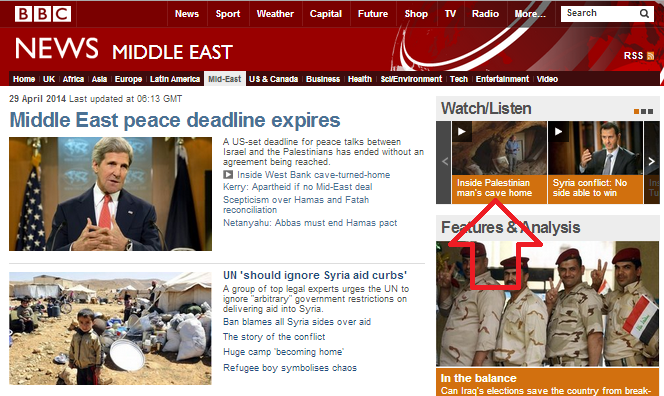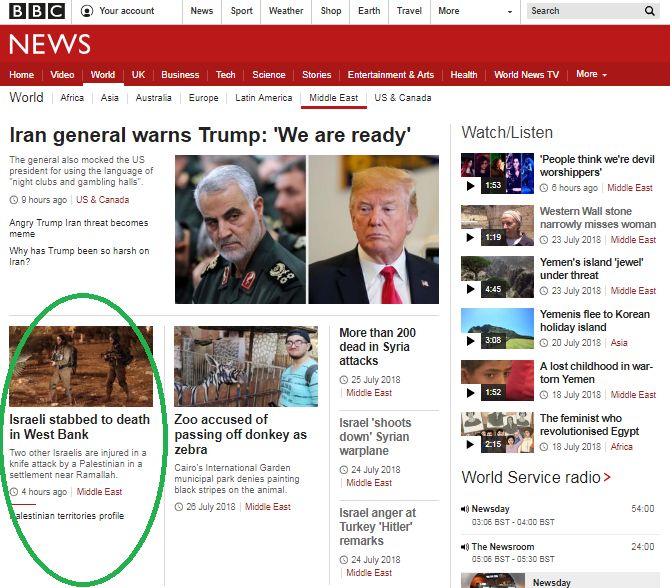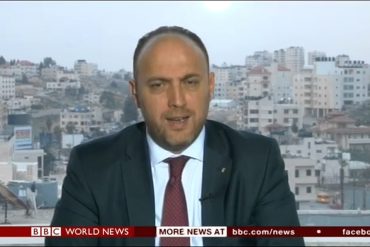“We should not automatically assume that contributors from other organisations (such as academics, journalists, researchers and representatives of charities) are unbiased and we may need to make it clear to the audience when contributors are associated with a particular viewpoint, if it is not apparent from their contribution or from the context in which their contribution is made.” (BBC Editorial Guidelines, Impartiality, section 4.4.14 – emphasis added)
Like the BBC Editorial Guidelines as a whole, that section applies to all BBC content. However, on May 17th the ‘In Pictures’ page of the BBC News website published an item headlined “Hard Work” (which also appeared in the ‘features’ section of the website’s Middle East page) which failed to conform to that clause.
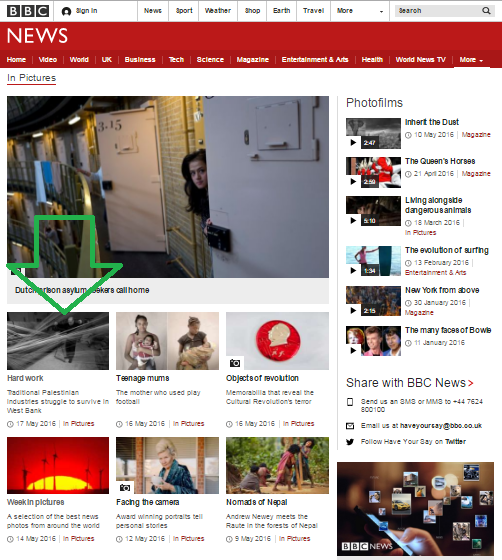
That link leads to a photo essay titled “Traditional industries in the West Bank” in which audiences are told:
“In the West Bank, several traditional Palestinian industries are still utilising historical techniques fine-tuned through generations – but once flourishing industries, such as shoemaking in Hebron or olive oil soap production in Nablus, are barely surviving, with a fraction of their former workforces.
Photographer Rich Wiles has been documenting these industries, some of which may not survive much longer in the current political and economic climate.”
Rich Wiles, however, is not only a photographer: he is also a professional political activist who uses his camera as a tool for the advancement of his chosen political cause – as is apparent from an interview he gave to a local UK newspaper in 2014.
“It might not be an easy place to live, but Rich Wiles feels at home in Palestine.
The Hull-born photographer has spent the past decade in this unsettled part of the world, getting married and starting a family along the way.
Now his latest exhibition – chronicling life in parts of this frequently war-torn region – is on show in London.
“It is never an easy place to live, but it is a beautiful place to live at the same time,” said Rich, who lives in Ramallah with his wife, Cyrine, and their baby daughter, Nadia-Sue. […]
In 2001, at the age of 27, he decided to study for an HND at Hull School of Art and Design.
After becoming involved in the anti-war movement in the run-up to the invasion of Iraq, he was invited by friends from the movement to join them on a trip to Palestine.
He went on to work with Creative Partnerships in Hull, where he organised photographic projects with children here and in the West Bank.
In 2005, moved by what he had witnessed, he decided to move to the Aida Camp for Palestinian refugees, which is located just outside of Bethlehem.
Since his arrival in Palestine, Rich has helped to establish the Lajee Centre Arts & Media Unit in the camp.
He now works at BADIL, the Resource Centre for Palestinian Residency and Refugee Rights in Bethlehem.”
In addition to his involvement with the anti-Israel NGO ‘Badil’, Wiles can regularly be found promoting his campaigning photography at outlets such as Al Jazeera, the Hamas-linked MEMO (which, interestingly, describes him as “MEMO photographer Rich Wiles”) and other Hamas-linked outfits such as the ‘Palestinian Return Centre’.
“In the past Wiles has referred to his photography as a tool of activism. “A photograph is never going to give Palestinians their rights,” he says, “though art is part of a culture of change.”
“History shows us that all liberation struggles have involved elements of armed struggle, they’ve involved elements of popular struggle, demonstrations, they’ve involved art, they’ve involved culture and they’ve involved literature. All these things combined make an effective resistance movement.”” (MEMO, 20/8/14)
Little wonder then that the portrayal of “traditional industries” in Palestinian Authority controlled areas presented to BBC audiences only briefly touches upon the issue of competition with mass production (a difficulty faced by artisan manufacturers worldwide), but does point audience attentions in one particular direction.
“Several olive-oil soap factories were destroyed by an earthquake that hit Nablus in 1927. More recently, during the second Intifada, which began in 2001, Israeli military attacks on Nablus caused further destruction to the historical buildings. And, today, only three factories remain in production.”
The second intifada of course began in September 2000 – not in 2001 – and this portrayal conveniently erases the very relevant fact that it was initiated by the Palestinian Authority and that Israeli military activity in towns such as Nablus (Schem) came after – and as a result of – over eighteen months of Palestinian terror attacks which resulted in the deaths of hundreds of Israeli civilians.
“Historically, Palestinian tanneries got hides from neighbouring Arab states. More recently, supplies suffered from Israel’s economic embargo against Gaza’s Islamist rulers, which together with a ban on chemicals for security reasons has brought Zarai tanneries in Hebron to the brink of closure, its managers say.”
The terrorism which brought about restrictions on the entry of dual-use goods into the Gaza Strip (inaccurately described here as an “economic embargo”) and the terrorism of the second intifada which brought about the (later rescinded) ban on the import of sulfuric acid “due to its potential dual use as an ingredient in explosives-making” are predictably erased from audience view.
In the world of propagandists such as Rich Wiles, Palestinians are exclusively portrayed as passive, lacking in agency and free of any responsibility for the outcomes of their choices.
Whilst that approach may be good enough for outlets with a casual relationship with facts and truth such as Al Jazeera and MEMO, the editorial guidelines quoted above were put in place precisely in order to ensure that BBC audiences get accurate and impartial news rather than politically motivated propaganda.
That means that Rich Wiles’ “particular viewpoint” should have been clarified to readers of this article – and no: the link to his personal website right at the bottom of the page does not suffice.

